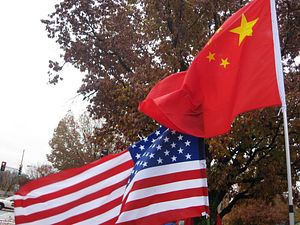A former officer with the United States Central Intelligence Agency (CIA) has been arrested and charged with illegally retaining classified information, the U.S. Department of Justice revealed on Tuesday.
Jerry Chun Shing Lee, a naturalized U.S. citizen who currently lives in Hong Kong, was arrested on Tuesday after arriving in New York City for the “unlawful retention of national defense information,” the Department of Justice noted.
Lee, who is also known as Zhen Cheng Li, resides in Hong Kong and, according to court documents filed by the U.S. Federal Bureau of Investigation, kept highly sensitive CIA data on sources and methods following the end of his service with the Agency.
While Lee has been charged with the retention of classified U.S. intelligence information, sources near to his case have told both the New York Times and NBC News that he may be the so-called mole at the center of a mysterious intelligence breach that allowed Chinese counterintelligence agents with the Chinese Ministry of State Security to systematically kill a wide range of sources—”more than a dozen,” according to a New York Times investigation published last year.
Lee’s arrest affidavit, which was filed with the United States district court for the Eastern District of Virginia, does not directly mention the transfer of classified data to a foreign government.
The affidavit notes that U.S counterintelligence investigators searched his possessions in August 2012 and found evidence of hand-written notes that a CIA classification authority later deemed contained highly classified information—up to “top secret.”
“A review of photographs taken during the August 13, 2012, search in Hawaii and the August 15, 2012, search in Virginia revealed that, during his stay in both hotels, LEE possessed two small books (the “books”) best described as a datebook and an address book,” the arrest affidavit notes.
“The datebook contained handwritten information pertaining to, but not limited to, operational notes from asset meetings, operational meeting locations, operational phone numbers, true names of assets, and covert facilities,” the affidavit added.
“The address book contained approximately twenty-one pages. The address book contained true names and phone numbers of assets and covert CIA employees, as well as the addresses of CIA facilities.”
While the implication that Lee abetted Chinese counterintelligence efforts has been implied by sources who spoke to the Times and NBC, the arrest affidavit makes no mention of China or any other foreign nation receiving the information Lee held.
The Department of Justice’s charges, for now, only concern Lee’s retention of classified data. For now, it appears unlikely that the public will learn more of the circumstances surrounding Lee’s case — including whether Lee’s actions may have led to the killing of CIA assets in China.

































